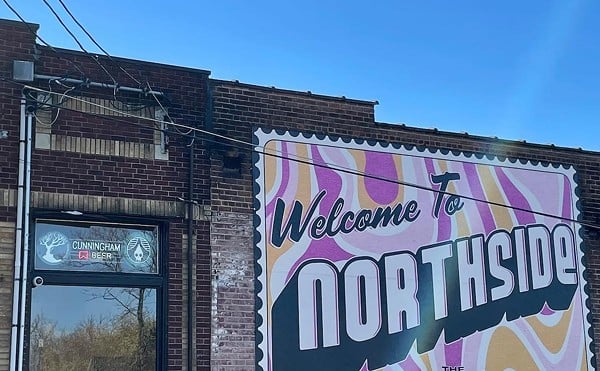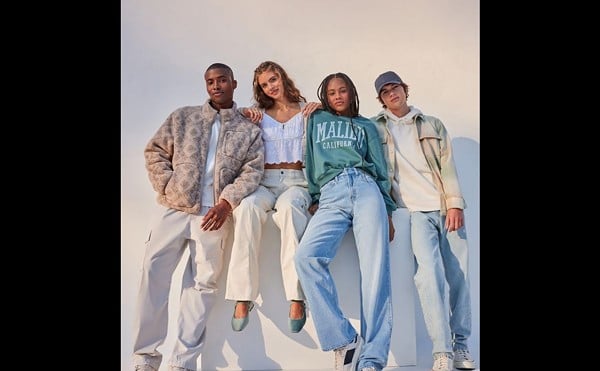|
You know that old saying about how you can't keep a good man down? Meet Frank Black. When he disbanded the wildly influential Pixies, he didn't sit around and wish for a return to the salad days of Surfer Rosa and Doolittle. He had other plans.
He released a self-titled solo album in 1993 that explored everything from Surf Pop to Heavy Metal. Then he released Teenager of the Year and Cult of Ray, two records that, to use another cliché, get better with age.
Then there was the material he recorded with his backing band The Catholics — albums like Pistolero, Black Letter Days and Devil's Workshop. Like Bob Pollard, the man vomits material at an unparalleled rate. Black toured with The Catholics for a while, and then came the event that longtime fans thought would never happen: a Pixies reunion in 2004.
But instead of cashing in on the reunion phenomenon like many of his peers from the same era, he opted (for the time being) to forgo a new Pixies album and work on another solo album, which eventually coalesced into the brilliant Southern Roots Rock opus, Honeycomb, released in 2005 to wide critical acclaim.
(Recent news reports suggest Pixies will indeed reconvene early next year to work on a potential new album.)
Less than a year later, he released Fast Man Raider Man, which started with four songs held over from the Honeycomb sessions that he'd recorded with a pack of legendary Memphis studio musicians such as Steve Cropper.
"Those four songs were left over because we were trying to make Honeycomb nice and lean, and they didn't fit because they were the wrong mood and didn't sound the same," Black says. "And since Fast Man Raider Man ended up being a big, over-bloated affair, there was no problem just sticking 'em on there; there was plenty of room for everybody."
He laughs, obviously in a good mood. His kids are playing in the background, and he's just finished up a load of laundry — yes, Frank Black does laundry — at his new home in Portland. Black is relaxed, more at home in his skin than he's probably ever been.
Forget the fabled surliness. This is the new Frank Black, the one who talks about what music meant to him when he was growing up in Harbor City, Calif., the one who can joke about his "Rock Star" moments and the one who decided to pull an all-night recording session in the middle of the Pixies' reunion tour just because he had some ideas for new material.
Black and an all-star cast of musicians — including Cropper, Reggie Young, Spooner Oldham, P.F. Sloan, Carole Kaye, Levon Helm from the Band, Tom Petersson from Cheap Trick and Buddy Miller, to name just a few — rolled through 27 tracks on the two-disc Fast Man Raider Man. The songs range from the eccentric "Kiss My Ring" to the Irish drinking song "Dirty Old Town," a duet with Marty Brown, to the darker and more introspective "Raiderman," one of Black's favorite songs on the album. As usual, there's plenty of room for interpretation with Black's lyrics.
"A lot of journalists are like, 'Your songs are really bizarre,' " Black says. "That's sort of their starting point. But I don't think they're that bizarre and I feel like this kind of bland narrative in a lot of songs today has become kind of a superpower in the world of songwriting.
"When I first started picking up records by The Beatles or Bob Dylan and listening to them, I was like, 'What are they singing about?' " Black continues. "It was just a big cryptic mystery, unless it was a song like 'I Want to Hold Your Hand.' I didn't know who Quinn the Eskimo was or what 'A Day in the Life' was all about. It was all mysterious, and so, to me, that is the appropriate shape of a Rock lyric. It's something that's dreamy, cryptic, strange, surreal, whatever. It's sad when people are like, 'I don't get that.' It's like, 'What have you been listening to?' "
Nowadays, he says, there are precious few musicians creating any mystery. He says Beck is one, and maybe some Hip Hop musicians, but on the whole, he feels a bit disconnected with what's going on in the world of commercial music.
"It's not that I'm against really simple narrative songs," he says. "I just feel like a lot of people have the wrong idea about what it is to be an artist. I think they feel they have to prove how serious and heartfelt they are and how they have all these issues with the world. They're just not having enough fun."
Fun was the point behind Honeycomb and Fast Man Raider Man, Black says. He just wanted to get some guys together in a studio and write some good tunes. In fact, when Black went through all of the disparate Fast Man Raider Man recording sessions — in total, there were six — he spent some time laughing at the challenges he faced.
"I was surprised at how many legends I had to erase off of the record," he says, obviously relishing the ridiculousness of his dilemma. "There was just so much playing and so many people that a lot of times (during) mixing, we had to eliminate stuff, which is not a big deal except for the fact that it was, like, super-legend Al Kooper. 'Yeah, take the Al Kooper organ out' or 'Take the Steve Cropper out.' I never thought I'd hear myself saying that in a recording session, but that's what we were doing because we had so much stuff."
After nearly 30 years in the world of Rock & Roll, Black has seen both the upside and downside of the business. He's watched one marriage fall apart and been lucky enough to find another woman to share his life with. He's been criticized; he's criticized others. He's done the label dance more than once. What remains consistent is his appreciation for the opportunity that music offers.
"It's freedom to be a Rock musician," he says. "I hate to be hokey, but that's really how I see it. From my perspective, whether you're in a wedding band or a Reggae band, Disco band or whatever, we're all playing songs and singing and trying to make people happy. That's how Frank Black sees it."
FRANK BLACK performs Tuesday at the Southgate House in Newport with Reid Paley.





